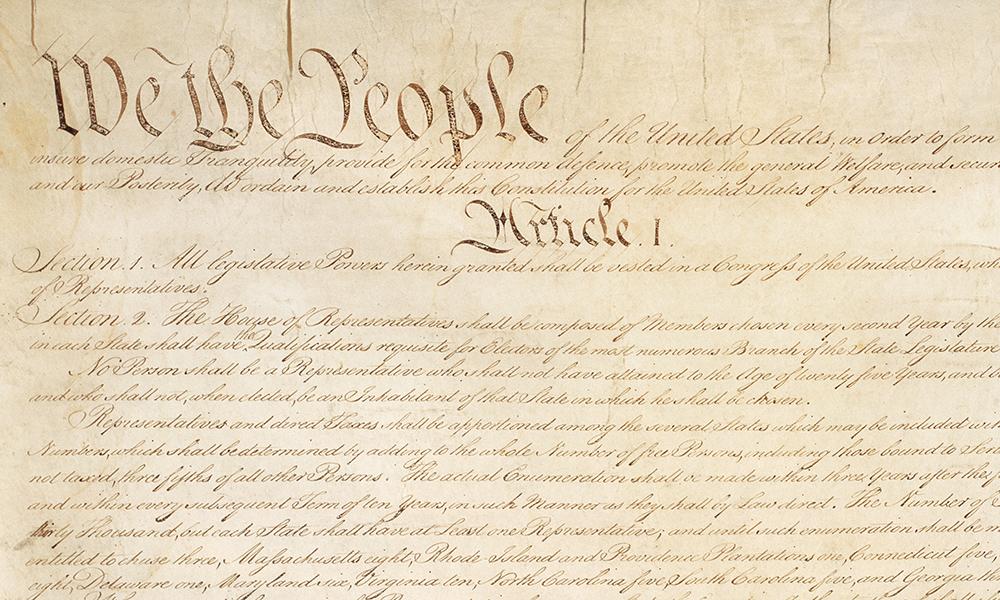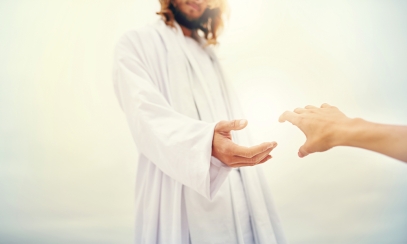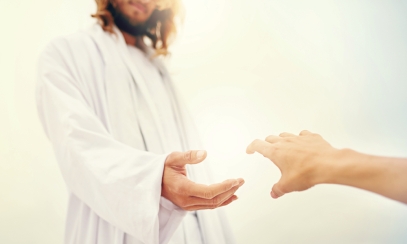
Prudence Will Watch Over You – Part 3
Welcome again to our on-going moral discernment of the issues surrounding COVID-19 vaccination. Last week, we talked about the ethical issues in the development and production of some vaccines. The main take-away was the Church’s guidance that we can receive the currently available vaccines in good conscience. It is also important for us as a Catholic community to seek out higher ethical-tier vaccines to show our moral objection to the use of fetal-derived stem cell lines.
This week, we will explore another important moral dimension of the vaccines: their relationship to the common good, and what that means for us here in Alabama. The Catechism of the Catholic Church (par. 1906) quotes St. John XXIII to define the common good: the “social conditions which allow people, either as groups or as individuals, to reach their fulfillment more fully and more easily.” The idea speaks to the importance of every member of society working together to promote the good of all.
What is the Common Good?
Perhaps you recall memorizing the Preamble to the U.S. Constitution in school? It gives a handy summary of the idea of the common good:
“We the People of the United States, in order to form a more perfect Union, establish Justice, ensure domestic Tranquility, provide for the common defense, promote the general Welfare, and secure the blessings of Liberty to ourselves and our Posterity …”
As a nation, we have committed to a Union of mutual cooperation in our common good, which includes respecting human rights (justice); maintaining a peaceful and stable social order (common defense and domestic tranquility); allowing everyone to participate equally in society (liberty); promoting universal access to the essential elements of a full life, such as food, clothing, housing, and work (the general welfare); and being confident that our commitment to freedom will lead to a prosperous and enduring society (blessings).
The Constitution may have been written mostly by the Protestant founders, but this Preamble is very Catholic! The Church teaches that each of us shares responsibility for the common good of our nation and the whole world. Last week, we mentioned the requirement for Christians to pay taxes, but taxes are certainly not our only responsibility. We are called to contribute to the world around us through humanitarian efforts, advocacy for the poor and marginalized, charitable works and giving, and passionate involvement in community, state, national, and international institutions. In other words, we should be zealous for the common good.
Vaccination and the Common Good
In His parables, Jesus often used health as an example of how righteous individuals contribute generously to the common good. The Parable of the Good Samaritan (Luke 10,25-37) paints a picture of a man who cares for an injured and dying person he encounters on the roadside. Despite differences of ethnicity and religion, their shared humanity moves the Samaritan to become a neighbor to the injured Jew, binding up his wounds, putting him on his own donkey, and bearing the financial burden for his healing. This act of mercy is a beautiful image of the meaning of shared responsibility for the common good of health.
The lessons for us now are clear. We are our brothers’ and sisters’ keepers, and they in turn take care of us. There are so many inspiring stories of how people have come together over the last year: dropping off food for immune-compromised neighbors, creatively finding safe ways to socialize, and being disciplined in their response to the recommendations of public health authorities.
To take one example, the masks are driving us all a bit crazy, and we all look forward to seeing each others’ faces again, but for now, wearing masks in public helps protect the well-being of our vulnerable neighbors. We Catholics should strive to be Good Samaritans through our public health practices, out of love for the vulnerable and as a witness to those whose hearts have grown cold.
With this in mind, it is clear that getting vaccinated is a positive contribution to the common good, reducing and eventually ending the pandemic. Just think of how much good has come because you do not have to worry about smallpox, polio, or the measles—through those vaccines, we have all benefitted tremendously from others’ responsibility. Similarly, the COVID vaccines protect everyone around us. This is especially important because not everyone can be vaccinated: no vaccines have been approved for children yet, and some adults suffer from medical conditions that make vaccination medically inadvisable for them. Love for vulnerable neighbors should be foremost in our minds, as we contemplate getting vaccinated.
Practical Contributions to the Common Good
Beyond getting vaccinated ourselves, the current moment presents us with other ways to contribute to the common good. As Pope Francis has made clear, the world’s goal in the vaccine effort should be universal access: “For these lights to illuminate and bring hope to all, they need to be available to all” (Urbi et Orbi, Christmas 2020). All of us have a part to play in this task.
First, we should be generous and proactive in helping others get vaccinated. For those with family members or neighbors who lack transportation, this is a good opportunity to reach out—like the Good Samaritan, let’s place those in need on our own donkeys, if that’s what it takes! Similarly, technologically-savvy individuals can help the technologically-challenged navigate the reservation systems for hospitals and pharmacies. If someone you know is eligible for a vaccine but is having trouble with the sign-up website, giving them a helping hand will be a great kindness.
Pope Francis has suggested another way to contribute to the common good in his recent encyclical, Fratelli Tutti (“Brothers and Sisters, All”). In this letter, he describes how certain voices in our world benefit from spreading despair and suspicion to the detriment of society (FT, 15). A key tool in this assault on the common good has been social media, where people often talk past each other instead of genuinely opening their hearts (FT, 199).
The common good of our society and world requires us to be voices of encouragement and positivity, especially on social media. The words we say and write have an impact on others, and the importance of vaccination for the common good means that we must be conscientious about our words. Above all, we should strive to be examples of truth and charity in conversation. This means taking care to avoid unintentionally passing along inaccurate health information—please be sure to rely on verified information from legitimate public health authorities rather than internet “experts” or political commentators. We also need to work as hard as we can to avoid disparaging or demeaning others, regardless of how their beliefs differ from ours.
Finally, as Catholics, we need to speak up for all members of our community and our world. COVID has affected every member of the human family, and our hope is that the suffering it has caused will be relieved for all. Members of under-served ethnic and economic communities and nations possess the same human dignity and are part of our common good—when our neighbors suffer, we suffer. The recent emergence of new strains of the virus highlights the depth of our inter-dependence. The pandemic will not be over until it is over for everyone, and so we must ensure that the most marginalized have access to vaccination, through personal generosity and public advocacy.
Once again, I appreciate your open-mindedness and open-heartedness as we continue our moral reflection on the COVID vaccines. Next week, we will work to bring the entire conversation so far into the bigger picture of the Bible’s perspective on public disease and health.
(This article first appeared in the Feb. 5, 2021 issue of the One Voice newspaper.)


